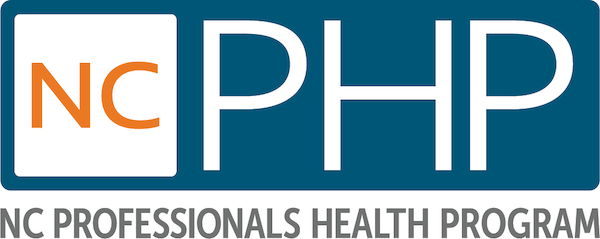22 Aug 6 Major Job/Employee Mismatches Which Cause Job Burnout – by Clark Gaither, MD, FAAFP
One faithful day, you notice you wake up and immediately find yourself in a dreadful mood. The thought of going into work almost nauseates you. You search for any kind of meaning in the work you do, but find none. “Soul sucking” are words you have used to describe your current work situation.
Try as you may, it’s hard to come up with good reasons to get out of bed. You look forward only to the weekends and you’ve come to dread Monday mornings. Then you hear a voice, your voice, saying what up until now you couldn’t say, were afraid to say, out loud – “I can’t do this anymore.”
So, you’re burned out.
Now what? Well, in order for things to change, you are going to have to change some things.
In a previous post, I reviewed the three principle hallmarks of job related burnout (JRB). Recognizing job burnout may be the first (and last) step in discovering the problem, but it is no closer to a solution. Although the three hallmarks of burnout aptly describe how people feel when they’ve burned out, they are not the cause of JRB.
Job burnout occurs anywhere there is a mismatch between the work environment or job and the individual performing the job. A major mismatch is created anytime there is sufficient conflict between the nature of the person and the nature of the task the person is being asked to perform.
As explained by Dr. Christina Maslach in her book, The Truth About Burnout, there are six of these major job/employee mismatches. They are as follows:
- Work Overload. Downsizing, budget cuts, layoffs, and reorganization efforts usually result in three things – more work intensity, more demands on time, more job complexity. In short, providers are required to do ever more with less. This can leave individuals feeling exhausted and overwhelmed.
- Lack of Control. Organizations which become intolerant of creative problem solving in lieu of centralized control will squelch individual autonomy. This reduces a provider’s capacity to set limits, exercise problem solving, select individualized approaches to work, allocate resources and set priorities. The overall effect is a loss of interest in the job and monumental frustration among providers.
- Insufficient reward. Market forces focusing on reducing costs have also reduced organizations’ capacity to reward their employees in meaningful ways. People seek tangible rewards from meaningful work such as money, security, recognition, benefits, intrinsic satisfaction, etc. If these are lacking, people naturally begin to wonder why they are working so hard. More work + less reward = dissatisfaction. It is particularly distressing when additional work is added, but instead of tangible rewards, there are actual decreases in compensation.
- Breakdown of Community. As organizations grow larger or too quickly, a breakdown in the character of the organization can result as short-term profit is chased at the expense of interpersonal relationships within the company. This will inevitably lead to greater conflicts among providers/employees, a lack of mutual support, lack of respect and a growing sense of isolation. Dr. Maslach states, “A sense of belonging disappears when people work separately instead of together.”
- Absence of Fairness. Dr. Maslach perceives a workplace to be fair when three key elements are provided: trust, openness, and respect. When all three are present employees are valued and they will, in turn, feel valued and remain fully engaged (the opposite of burnout). When these elements are absent, burnout will be the direct end result.
- Conflicting Values. If organizations say they are dedicated to excellent care and service, yet take actions which damage the quality of the services they provide, then conflict results. This can be extremely frustrating and demoralizing to employees, especially if their internal moral compass or core values are being assailed. To achieve a quality product or service, a company’s values must remain in alignment with those of the employees and vice versa.
It is not generally recognized that the work environment is responsible for burning out providers upwards of 90% of the time. Only 10% of the time will a healthcare provider burn themselves out. In order to alleviate job burnout, job/provider mismatches must be addressed head on so the root cause of each can be eliminated.
To determine why burnout rates are so high and climbing, one only has to look at how and in what ways the practice and business of medicine have changed over the past two decades. All of these job mismatches can be found to varying degrees in hospitals, provider groups, and offices all across the country.
Providers, once in the driver’s seat, are now back seat passengers in the “business” vehicle of healthcare. We have paid a heavy price for relinquishing our measures of control.
All is not lost, though. Some hospitals and provider groups have begun aggressive and progressive workplace redesigns aimed at eliminating and preventing the mismatches. They have found this to be beneficial to both patients and providers. The Direct Primary Care model, which gives providers an alternative to the traditional business models of practice, is showing up nationally for providers of primary care.
If an organization or employer values their providers and the services they provide, then they will make needed change happen in order to retain talent. If an employer’s eye is only on the bottom line then the likelihood of needed change will be vanishingly small.
This is where the hard choices present themselves for the individual suffering from job related burnout. Stay put or if the work environment won’t change, change work environments.
This is often easier said than done. Providers will often wait until desperation drives them to quit and move on to other work or a different job. A heavier price is usually paid by waiting. It is important to remember, change is hard, but not impossible.
There is an upside to job burnout if you have the mindset to see it. Those who are not content to stay the same are the individuals who have a higher than average chance of finding a proper avenue for displaying their true purpose and passions in life.
Burnout will cause them to stretch beyond their current perceived capabilities to embrace new opportunities. They choose change. They jump out of bed in the morning to resume the most important work in the world, taking care of patients, but in a setting which more closely aligns with their core values.
Do you recognize any of the mismatches in your work? Do you feel burned out now? What steps will you take to alleviate job burnout? Do you need a speaker on Job Related Burnout for your group or organization? If so, please consider contacting NCPHP at 919-870-4480. We are here to help!

